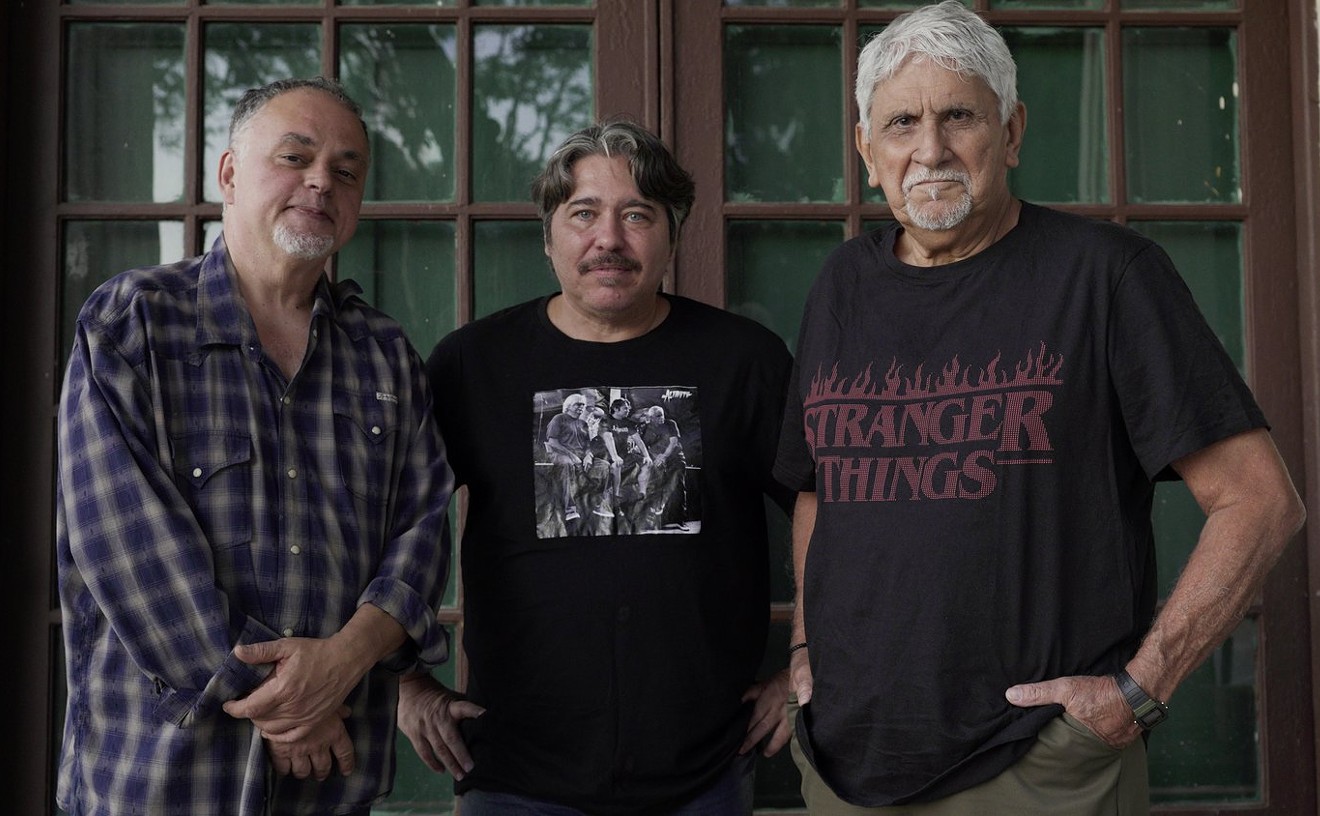Not surprisingly, then, the tracks that try hardest to be loud and catchy are not very exciting. In "Train to Terminal Boredom" there's a piano that gets the bejesus banged out of it, and a raucously blurting saxophone. "And we've all done time, uh-huh, waiting for that train," Shouse snarls. Piano, sax, curled-lip posturing -- we've heard it before and more expertly done, to boot. But on the album's slower tracks, the band discovers its true grace. "Telegram" unwinds like a lazy afternoon and "Up to You" charts enticingly dark territory against a background of softly brushed drums and punctuating violins. Shouse sounds tired in this song as he goes on about twilight shadows and treacherous hands, complaining that he's had his feelings tampered with enough. "The Wake of Your Flood" also finds him in a somber mood, but this time Shouse plays out the drama to acoustic strumming and a lilting piano. Wasser layers on the violin, never quite upstaging him. Shouse sings, "Here in the palm of my hand, the tale of an angry young man, who discovered an old path to love, here, in the wake of your flood." The words are sad and awkward, but they work. The sense of loss they convey makes it hard not to think of the late Jeff Buckley, who was a friend of Shouse and no doubt helped inspire the overall tone here. After its shining moments, however, the rest of the album falls into anticlimax. "Has Anybody Seen Her?" is supposed to be about a femme fatale who is always slipping out of reach, but it's not convincing. The closing track, "Spaced Out," which appeared in a different form on the Grifters' last album, Full Blown Possession, is a quirky number, worth noting if only because it shows a playfulness otherwise scarce. Luckily the hymns to the departed make up for the weak spaces, and stick around with you long after the CD has stopped playing. Here's hoping Shouse will keep turning down the volume.

Audio By Carbonatix
[
{
"name": "Air - MediumRectangle - Inline Content - Mobile Display Size",
"component": "19274298",
"insertPoint": "2",
"requiredCountToDisplay": "2",
"watchElement": ".fdn-content-body",
"astAdList": [
{
"adType": "rectangle",
"displayTargets": "mobile"
}
]
},{
"name": "Editor Picks",
"component": "17482312",
"insertPoint": "4",
"requiredCountToDisplay": "1",
"watchElement": ".fdn-content-body",
"astAdList": [
{
"adType": "rectangle",
"displayTargets": "desktop|tablet"
},{
"adType": "rectangle",
"displayTargets": "desktop|tablet|mobile"
}
]
},{
"name": "Inline Links",
"component": "18711090",
"insertPoint": "8th",
"startingPoint": 8,
"requiredCountToDisplay": "7",
"maxInsertions": 25
},{
"name": "Air - MediumRectangle - Combo - Inline Content",
"component": "17482310",
"insertPoint": "8th",
"startingPoint": 8,
"requiredCountToDisplay": "7",
"maxInsertions": 25,
"watchElement": ".fdn-content-body",
"astAdList": [
{
"adType": "rectangle",
"displayTargets": "desktop|tablet"
},{
"adType": "rectangle",
"displayTargets": "desktop|tablet|mobile"
}
]
},{
"name": "Inline Links",
"component": "18711090",
"insertPoint": "8th",
"startingPoint": 12,
"requiredCountToDisplay": "11",
"maxInsertions": 25
},{
"name": "Air - Leaderboard Tower - Combo - Inline Content",
"component": "17482313",
"insertPoint": "8th",
"startingPoint": 12,
"requiredCountToDisplay": "12",
"maxInsertions": 25,
"watchElement": ".fdn-content-body",
"astAdList": [
{
"adType": "leaderboardInlineContent",
"displayTargets": "desktop|tablet"
},{
"adType": "tower",
"displayTargets": "mobile"
}
]
}
]










